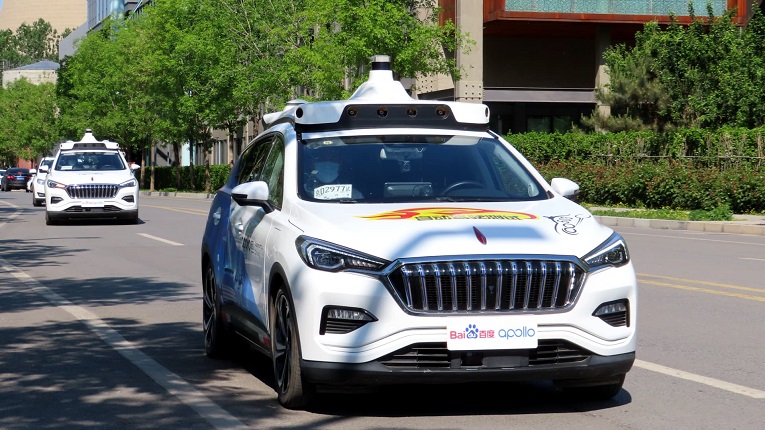China’s leading search engine, Baidu, has launched a driver less robo-taxi service in Beijing, marking a significant milestone in the development of autonomous vehicle technology. The launch is part of Baidu’s efforts to become a major player in the autonomous vehicle market and to gain an edge over competitors like Alphabet’s Waymo and Tesla.
The robo-taxi service, called Apollo Go, is initially available in a 3.16 square mile area in the Shougang Park, a former steel mill converted into a tech hub for the 2022 Winter Olympics. The service has been launched in partnership with Beijing’s Shougang Group, and users can hail a ride through the Apollo Go app, which is available on both Android and iOS.
The Apollo Go robo-taxis are equipped with Baidu’s Apollo autonomous driving system, which includes a combination of high-precision positioning, sensing, and decision-making algorithms. The system can accurately detect and avoid obstacles, follow traffic rules, and safely navigate through complex urban environments.
See more: G Bard vs ChatGPT
The robo-taxis are monitored by human safety drivers who are ready to take control of the vehicle in case of any emergency. Baidu plans to gradually phase out the safety drivers and aims to achieve fully autonomous driving in the future.
The launch of Apollo Go is a significant achievement for Baidu, which has been investing heavily in autonomous driving technology since 2013. The company has been testing autonomous vehicles on public roads in China and the United States and has partnered with several carmakers, including Volvo and Ford, to develop self-driving cars.
Baidu’s entry into the robo-taxi market puts it in direct competition with other tech giants like Alphabet’s Waymo and ride-hailing companies like Uber and Lyft, which are also working on autonomous driving technology. However, Baidu has several advantages over its competitors, including its extensive experience in developing artificial intelligence and its deep understanding of the Chinese market.
The launch of Apollo Go is also a significant development for China’s efforts to become a world leader in autonomous driving technology. The Chinese government has been actively promoting the development and deployment of autonomous vehicles and has set a goal for 30% of new cars sold in China to be electric or hybrid vehicles by 2025.
Overall, the launch of Baidu’s Apollo Go robo-taxi service represents a major step forward in the development of autonomous vehicle technology and has the potential to revolutionize the transportation industry. While there are still significant technical and regulatory hurdles to overcome, the rapid progress being made in autonomous driving technology suggests that fully autonomous vehicles may soon become a reality.

